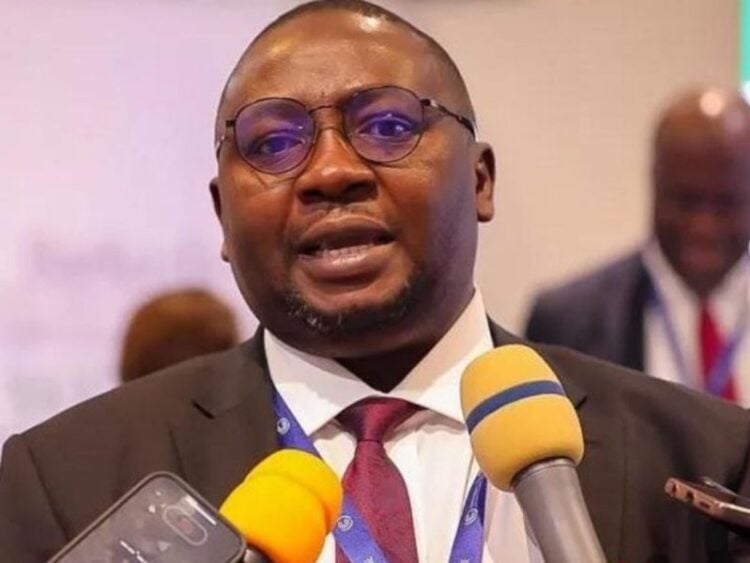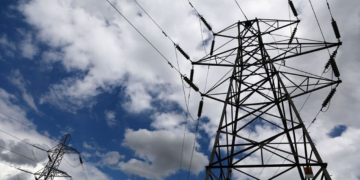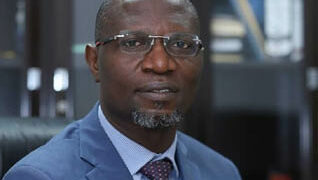Amid alarming statistics that about 40 per cent of Nigeria’s functional Primary Healthcare Centres (PHCs) still lack access to electricity, the federal government is intensifying its efforts to provide reliable power to health facilities nationwide, recognising the critical role that electricity plays in effective healthcare delivery.
The minister of Power, Adebayo Adelabu, who gave this commitment, declared that no hospital, diagnostic laboratory, or primary health centre should be in darkness.
Adelabu gave the assurance in Abuja on Tuesday at the First National Stakeholders’ Dialogue on Power in the Health Sector.
This dialogue and its initiatives are crucial when about 40 per cent of Nigeria’s functional Primary Healthcare Centres lack access to electricity, deeply compromising healthcare delivery in rural and underserved areas. Experts noted that without reliable power, vaccine storage is jeopardised, maternal health is endangered, and emergency services are constrained by darkness.
This is as the Minister of State for Health and Social Welfare, Dr. Iziaq Adekunle Salako, revealed that 40 per cent of public PHCs are unelectrified, with many others suffering unreliable access to power.
Adelabu described the event as a landmark step in aligning the energy and health sectors to improve service delivery.
The minister noted that the dialogue was an opportunity to “strengthen the link between reliable energy access and the delivery of quality healthcare services,” adding that collaboration between ministries, development partners, and the private sector was crucial.
“The challenges facing our nation, whether in health, education, or infrastructure, are interconnected. Without reliable power, health systems cannot function effectively.
“Without a healthy population, productivity and economic growth cannot be achieved,” the Minister said.
Adelabu highlighted ongoing interventions by the Federal Ministry of Power through the Rural Electrification Agency (REA), including deploying solar hybrid mini-grids, standalone solar systems, and battery storage solutions to healthcare centres nationwide.
He recalled that during the COVID-19 pandemic, REA installed 50kW solar mini-grids in about 100 healthcare facilities, ensuring an uninterrupted power supply for vaccine storage, emergency services, and critical medical procedures.
The minister further cited projects under the Energising Education Programme, including the 12MW solar hybrid system at the University of Maiduguri Teaching Hospital and the 7MW system at the University of Calabar Teaching Hospital.
According to him, the systems have provided clean, reliable energy while reducing costs and preventing misuse of hospital electricity allocations.
“These are not abstract achievements; they represent real lives being saved, communities being empowered, and healthcare being brought closer to the people,” Adelabu said.
The minister stressed that the next phase was to scale up these interventions nationwide, strengthen policy frameworks to attract investment in health-sector electrification, and blend public, private, and donor financing.
He added that the initiative aligned with President Bola Tinubu’s Renewed Hope Agenda, which prioritises access to power and quality healthcare.
“This is not just about powering buildings. It is about powering hope, dignity, and our nation’s future,” Adelabu declared.
This lack of electricity undermines critical medical functions such as vaccine refrigeration, nighttime deliveries, and emergency services, disproportionately affecting rural and underserved communities. “Without reliable power, health systems cannot function effectively,” Minister Adelabu observed, highlighting the fundamental need for energy in healthcare.
Under President Bola Ahmed Tinubu’s Renewed Hope Agenda, strengthening power access for health facilities has become a national priority. “By powering healthcare, we are advancing access to quality healthcare and sustainable development simultaneously,” Adelabu said. The Electricity Act of 2023 now encourages decentralisation and subnational government participation in energy provision, paving the way for innovative solutions.
Health authorities echoed the call for expanded collaboration and investment. Dr. Iziaq Adekunle Salako, Minister of State for Health and Social Welfare, emphasised, “The access and quality-limiting effects of energy poverty in our health sector demand a joint, coordinated response.” The government aims to mobilise diverse funding sources, blending public, private, and donor support to finance electrification projects sustainably.
The scale of the challenge is immense. Nigeria has over 40,000 healthcare facilities, with PHCs accounting for the majority. However, unreliable or no electricity access hampers service delivery, leading to poor health outcomes, including high maternal and infant mortality rates in affected areas. The government’s roadmap calls for electrifying thousands of PHCs in phases over the next decade, driven by robust policy frameworks, institutional collaboration, and innovative financing.











